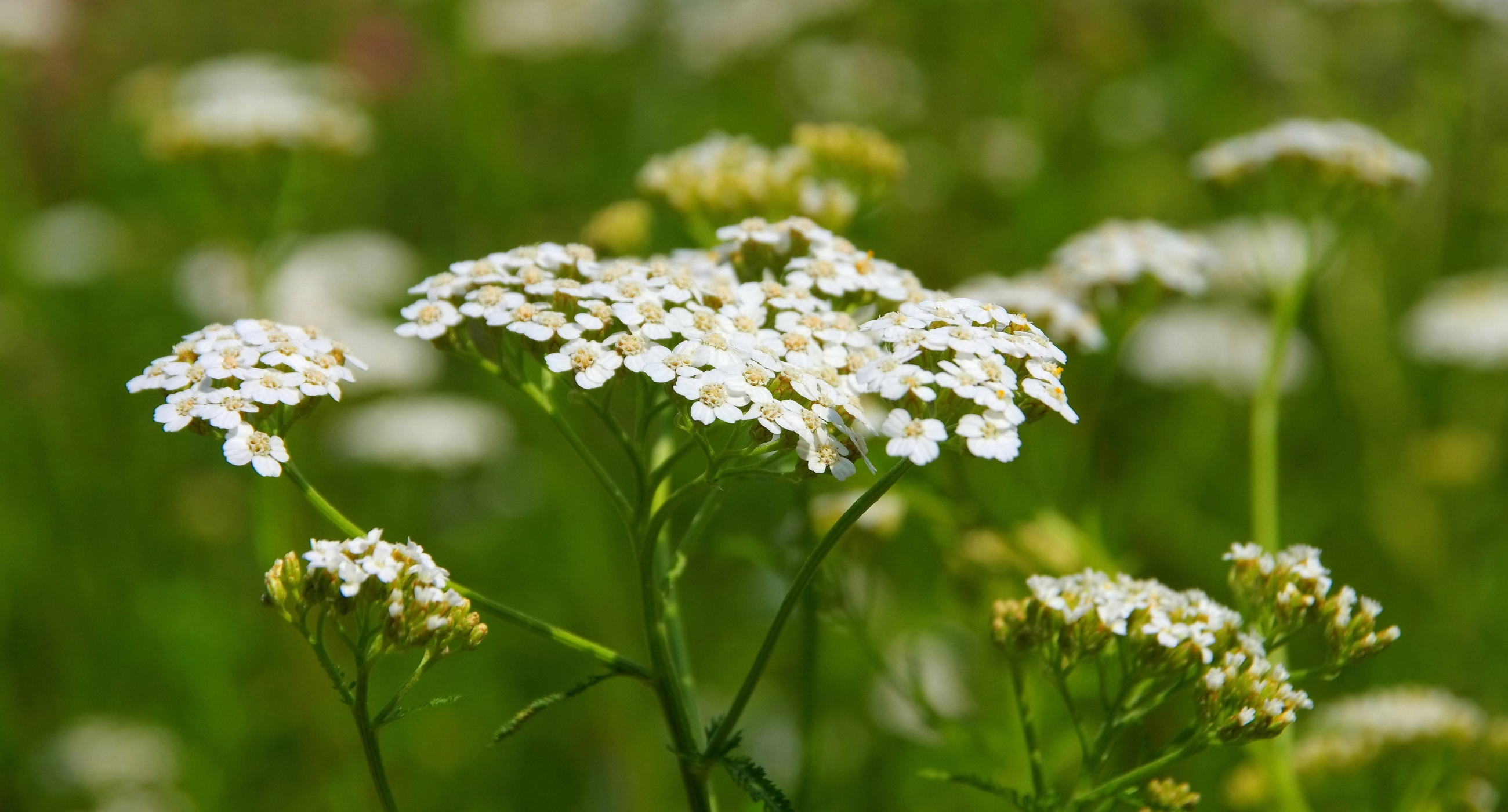
Yarrow
Scientific Name: Achillea millefolium
Herbal Profile: Yarrow (Achillea millefolium)
Botanical Name: Achillea millefolium
Common Names: Yarrow, Milfoil, Soldier's Woundwort, Thousand Leaf, Nosebleed Plant
Family: Asteraceae
Parts Used: Aerial parts (leaves, flowers)
Description: Yarrow is a perennial herb with feathery, fern-like leaves and clusters of small, white to pink flowers. It is native to temperate regions of the Northern Hemisphere.
Traditional Uses:
- Wound Healing: Used historically for its ability to stop bleeding and promote wound healing. Known as “Soldier's Woundwort” for its use in treating battlefield injuries.
- Digestive Aid: Helps with indigestion, bloating, and cramping.
- Fever Reducer: Used to reduce fevers by promoting sweating.
- Menstrual Relief: Alleviates menstrual cramps and regulates menstrual cycles.
- Anti-inflammatory: Reduces inflammation in conditions like arthritis.
Constituents:
- Volatile Oils: Including chamazulene, which has anti-inflammatory properties.
- Sesquiterpene Lactones: Including achillicin and millefin, which contribute to yarrow’s anti-inflammatory and antimicrobial effects.
- Flavonoids: Including apigenin and luteolin, which provide antioxidant benefits.
- Tannins: Contribute to yarrow’s astringent properties.
- Alkaloids: Such as achilleine, which aids in blood clotting.
Medicinal Actions:
- Anti-inflammatory
- Astringent
- Antimicrobial
- Antispasmodic
- Bitter tonic
- Carminative
- Diaphoretic
- Emmenagogue
- Vulnerary
Preparation Methods:
- Tea/Infusion: Made by steeping dried yarrow leaves and flowers in hot water.
- Tincture: Extracted using alcohol, typically taken in small doses.
- Poultice: Fresh leaves can be crushed and applied to wounds.
- Essential Oil: Extracted for use in aromatherapy and topical applications.
Dosage:
- Infusion: 1-2 teaspoons of dried herb per cup of water, steeped for 10-15 minutes. Up to 3 cups per day.
- Tincture: 2-4 ml (40-80 drops) up to 3 times a day.
- Poultice: Fresh leaves applied directly to the skin as needed.
Safety Considerations:
- Pregnancy: Avoid high doses during pregnancy due to its potential emmenagogue effects.
- Allergies: May cause allergic reactions in people sensitive to plants in the Asteraceae family.
- Skin Sensitivity: Can cause skin irritation in some individuals when applied topically.
Culinary Uses: While primarily medicinal, yarrow leaves can be used sparingly in salads and soups for their mildly bitter taste.
Growing Conditions:
- Soil: Well-drained soil, prefers dry to medium moisture.
- Sunlight: Full sun to partial shade.
- Propagation: By seed, division, or cuttings.
Other Uses:
- Gardening: Often used in companion planting as it attracts beneficial insects and repels pests.
- Crafts: Dried flowers are used in floral arrangements.
Yarrow has been valued for centuries for its wide range of medicinal uses and continues to be a staple in herbal medicine practices today.
